Nikole Hannah-Jones' 1619 Freedom School seeks to lift up Waterloo one learner at a time
- Oops!Something went wrong.Please try again later.
Two Black students held backpacks in their hands. The pair walked briskly, smiling, to a classroom on the second floor of a building in Waterloo.
Minutes later, Nikole Hannah-Jones followed. The Pulitzer Prize-winning journalist was back home to attend a holiday party for her 1619 Freedom School. Alongside childhood friends and family, the city's biggest star is trying to better her hometown's reputation — one learner at a time.
More: Marcus Norris was shot in the head at 7 on Chicago's South Side. He came to Waterloo, Iowa to heal.
Hannah-Jones, who grew up in Waterloo, won a 2020 Pulitzer Prize for commentary for her work on The New York Times Magazine's The 1619 Project. The project examined the role of slavery in the country's construction, America's complicated relationship with race and her personal history.
Waterloo-Cedar Falls was ranked the worst place in America for a Black person to live by 24/7 Wall Street in 2018. The 1619 Freedom School aims to change that standing. It offers solely an afterschool program, focused on raising the lagging literacy rates of Black fourth and fifth graders.
"How does a place that nobody even knows Black people existed, where the population is so small, make life so horrible for Black folks? Well, I know. I was born and raised here," Hannah Jones said in a wide-ranging December interview.
Growing up in Waterloo, Hannah-Jones felt the ongoing effects of redlining
Hannah-Jones' connection to Waterloo started when her father's mother, affectionately called "Grandmama," fled North in the 1940s and got off the railway in Waterloo.
Waterloo remains a highly segregated city, with Black and white neighborhoods separated by the Cedar River. When she was a child, Hannah-Jones' family lived in a Black neighborhood. Despite the segregation, her father continued to fly an American flag in the family's front yard as a patriotic act.
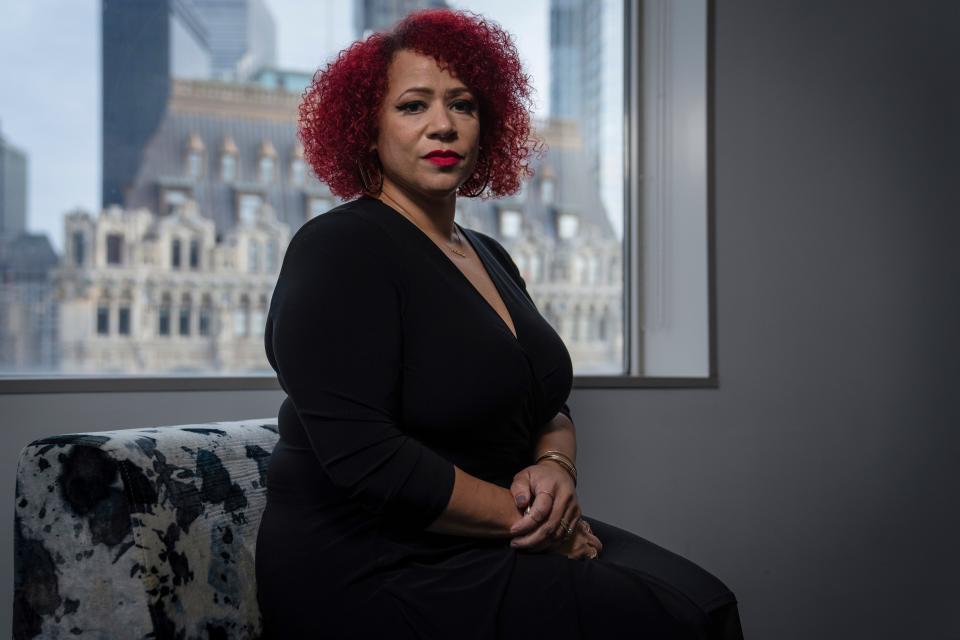
Hannah-Jones was bused to predominantly white Waterloo West High School, where she first learned about 1619 in the book "Before the Mayflower."
"I had been taught, in school, through cultural osmosis, that the flag wasn’t really ours, that our history as a people began with enslavement and that we had contributed little to this great nation," she wrote in her seminal piece for The 1619 Project.
The landmark piece of long-form journalism, published in August 2019, commemorated the 400th anniversary of the arrival of enslaved Africans at the British colony of Virginia in 1619. It includes more than 30 works, essays and poems.
Hannah-Jones wove personal narratives throughout to support the idea that Black Americans were crucial to the formation of America and its foundation. In 2020, she began work on the 1619 Freedom School.
'Most places would embrace that,' Hannah-Jones says of some Iowans' reaction to The 1619 Project's success
The New York Times Magazine's editor-in-chief, Jake Silverstein, said the project's response yielded "an enthusiastic response unlike any we had seen before."
A week later, the magazine sold out within hours when The Times made tens of thousands of copies available online. The project sold out several times. And the companion podcast had over 10 million downloads, Hannah-Jones said. But she also experienced an onslaught of criticism.
In February 2021, Iowa Rep. Skyler Wheeler, R-Orange City, introduced a bill, House File 222, aimed at banning curriculum based on the project. The bill did not pass, but another bill did that bans teaching certain concepts such as that the U.S. or Iowa is systemically racist.
Hannah-Jones said she was astounded that a state that had a reputation nationally for quality education succumbed to legislating ignorance in the classroom.
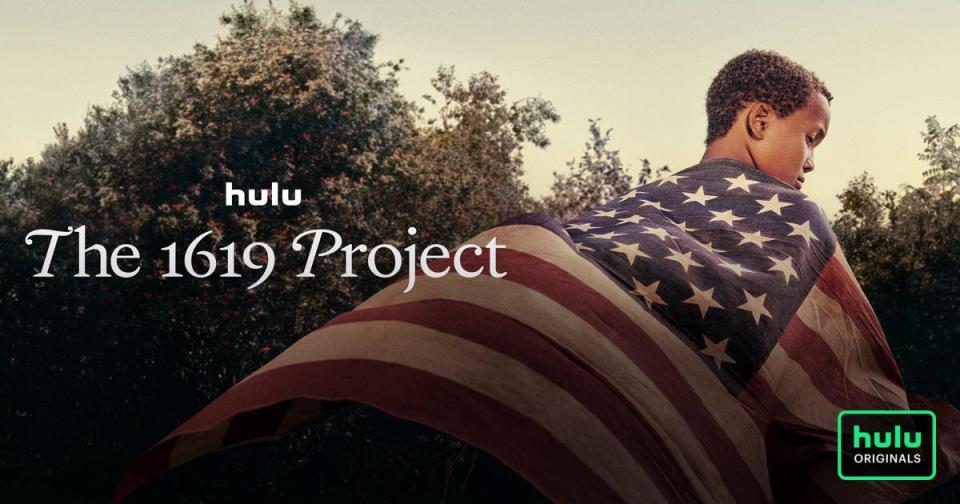
"Your native daughter, who because of the education she received in Iowa, because she had a Black studies teacher named Ray Dial who taught her 1619, went on to create this project that has been massively successful," Hannah-Jones said in the December interview. "Most places would embrace that."
Hannah-Jones' counterpoint to pushback of The 1619 Project is that students should be exposed to different ideas and different understandings of history. Students can ultimately disagree with the project's arguments, she said.

Hannah-Jones said that a quality education should help students to be critical, to have their own views challenged and, at times, be made to feel uncomfortable. Hannah-Jones added that she and her work are both symbolisms of a deep discomfort that critics carry.
"It's what I represent, which is a Black woman they think is too loud, that shouldn't look like I look and work at The New York Times and be successful and that is critiquing the mythology that they hold so dear," Hannah-Jones said.
Among all her accomplishments, Hannah-Jones is 'most proud' of 1619 Freedom School
The 1619 Freedom School opened in 2021. The program features an all-Black woman leadership team and a predominantly Black teaching staff.
"I actually feel the most proud of this school because, to me, the school is the embodiment of community," she said in reference to all of her life's accomplishments. "It's the embodiment of Black people being self-determining."
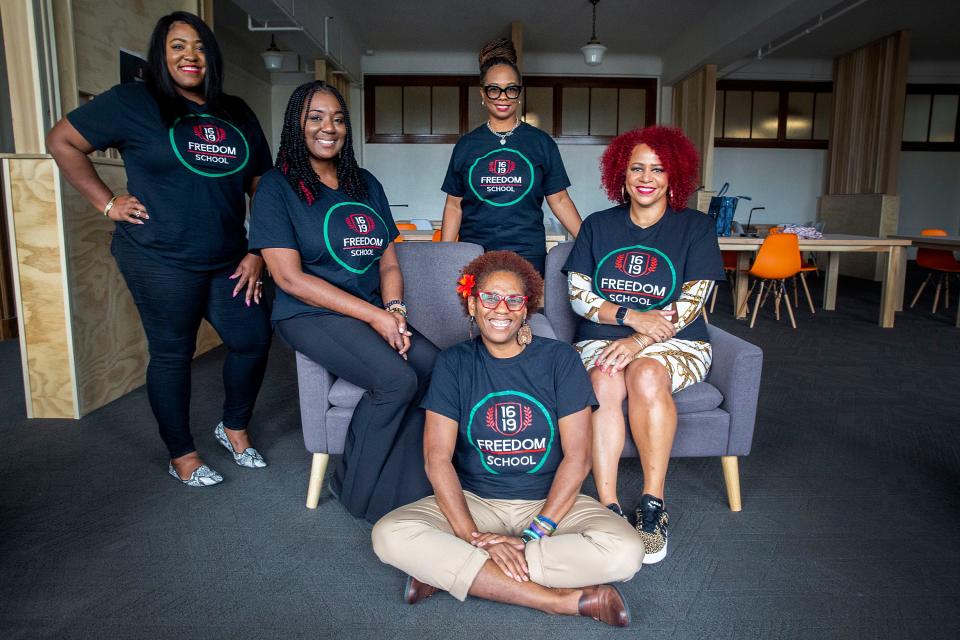
For five days a week, teachers instruct students with a curriculum cultivated by Dr. Sabrina Wesley-Nero, a Black educational researcher and teaching professor at Georgetown University. One of those teachers is Sharman Chambers, a Waterloo native and retired educator who taught in the school district for 22 years.
"I think very highly of Nikole because this is such a blessing what she's doing for all these kids. She didn't have to, but she chose to," said Chambers, who grew up in Waterloo.
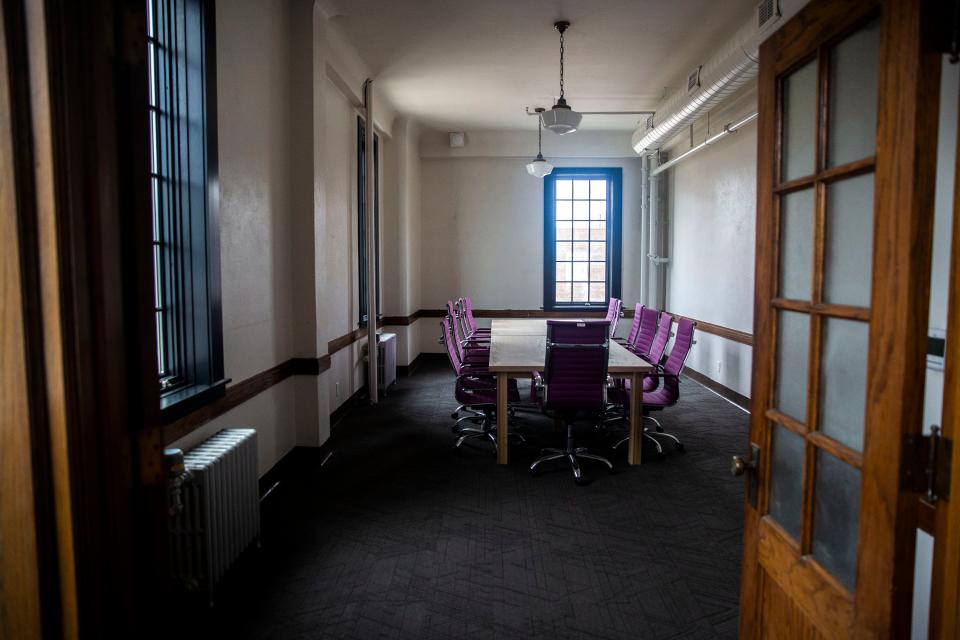
1619 Freedom School data shows Black student success with literacy
Chambers has seen academic growth in students while serving as an instructor in the program. The curriculum teaches students literacy through Black history. Chambers has seen students' self-esteem grow, too.
"It was really low, but now we see it growing because they can do these things," Chambers said.
The 1619 Freedom School's promise to help better educate the city's Black students has paid off.
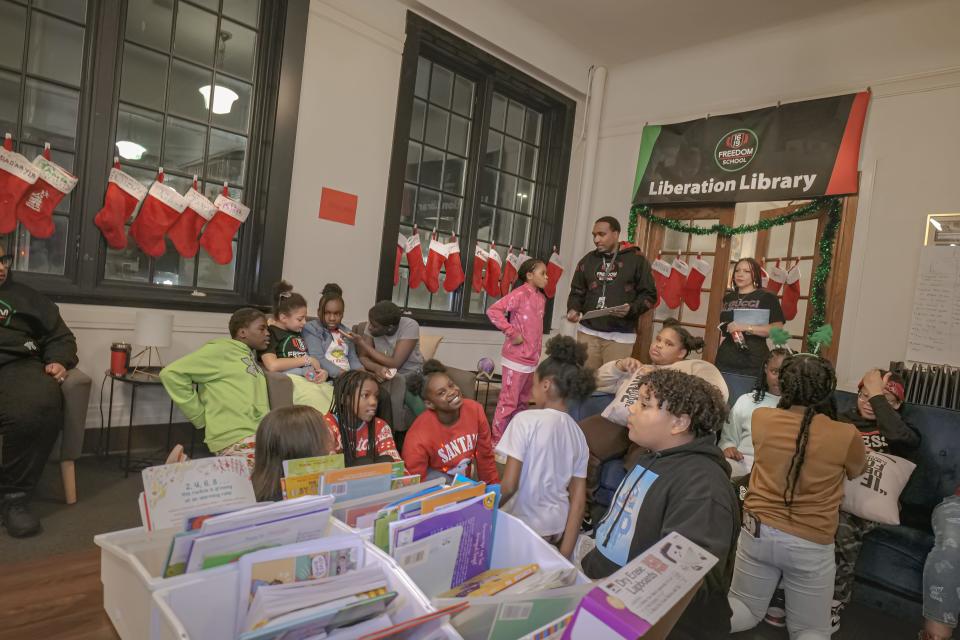
According to Freedom School data collected from the Waterloo School District, in just one semester, students had a 50% increase in reading comprehension on grade level. At the beginning of the program's first semester, only 14 of the 37 students could read on grade level. By the end of the semester, 21 students were reading on grade level.
Leaders' goal isn't to replace schools; it's to support the needs of Black students, Hannah-Jones said.
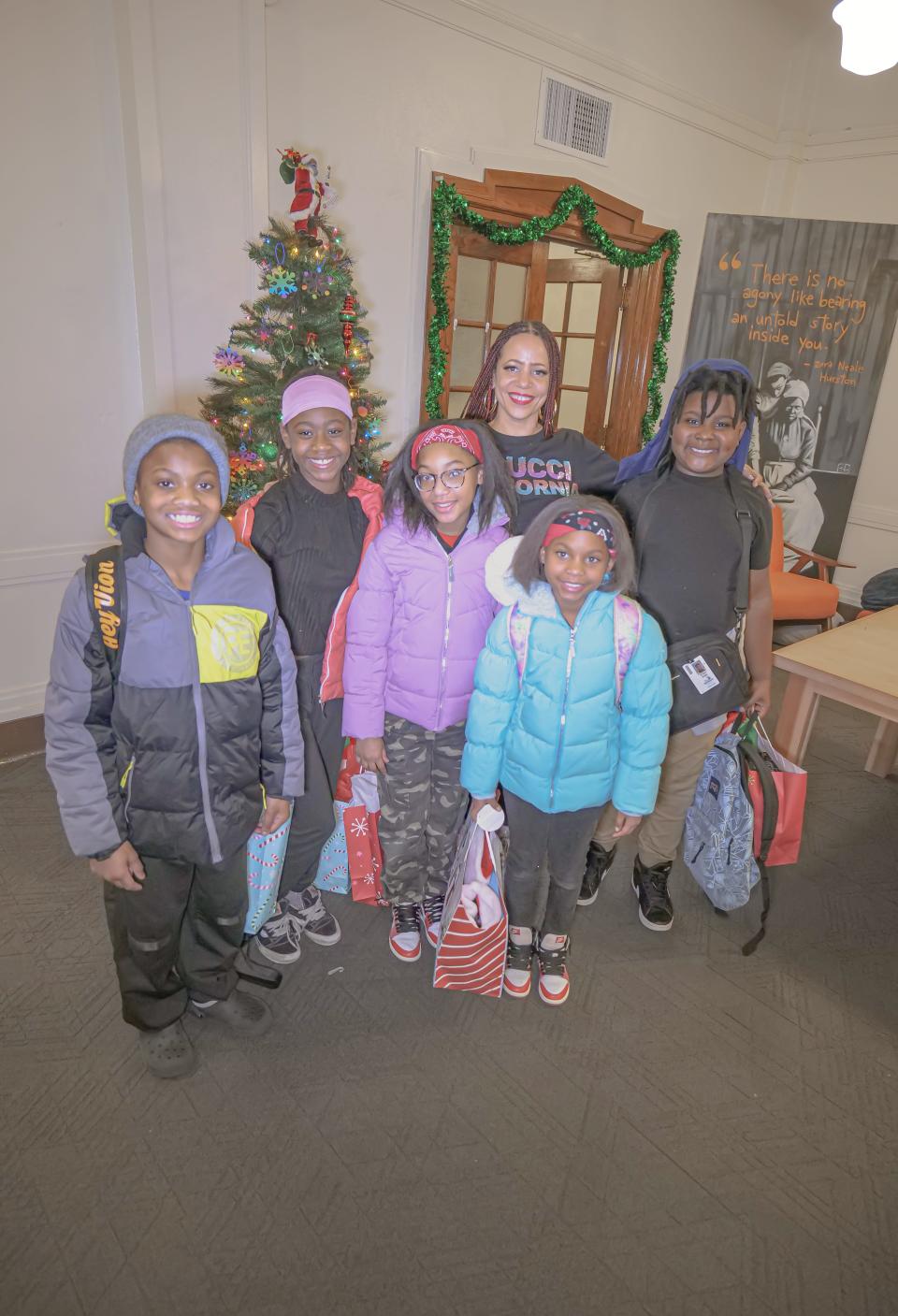
"I don't want to compete with Waterloo Public Schools," Hannah-Jones said. "I believe in public schools, and most of our kids are going to be at a public school. We always just wanted to supplement."
The program is currently at capacity with 65 students participating in the program. Another nonprofit organization gifted the 1619 Freedom School a house to help expand the school's programming. Hannah-Jones and the leadership team eventually hope to expand to a newly constructed building.
School is an example of Hannah-Jones' goal to create Black institutions
In 2021, the same year The Freedom School opened, Hannah-Jones rejected an offer of tenure at her alma mater, the University of North Carolina. UNC's board of trustees had refused to vote on her tenure. Later, after weeks of protest, the trustees were forced to vote and approved Hannah-Jones' tenure. It was too late.
She chose to teach at Howard University, one of the nation's premier historically Black colleges and universities. At Howard, she founded the Center for Journalism & Democracy.
She said of her choice to teach at Howard, "I was sending a message publicly, but also personally, saying, you know I have spent my entire life proving to white people that I'm deserving of being in their spaces and then having to fight them every day."
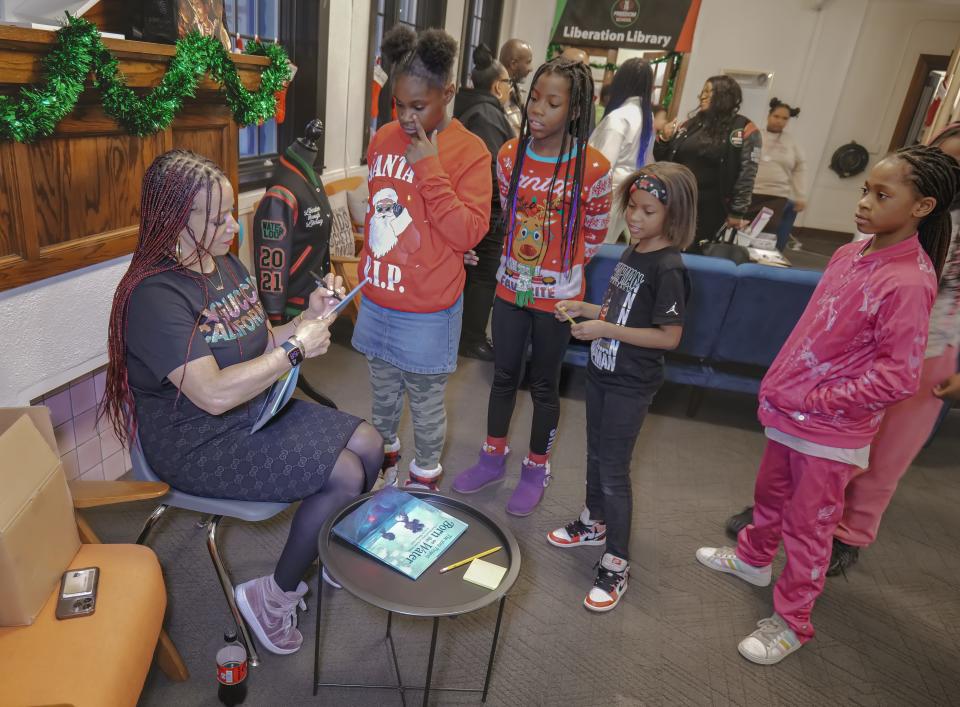
At the school's holiday party, she said the afterschool program aligns with her plans to create Black institutions. Hannah-Jones' legacy lives there now — where students carry backpacks and big dreams.
The two Black students from the hallway put down their backpacks. Halfway through the holiday party, they joined a single file line and waited to see Hannah-Jones, who sat and signed a copy of her children's book, "The 1619 Project: Born on the Water." She inscribed every book with each child's name.
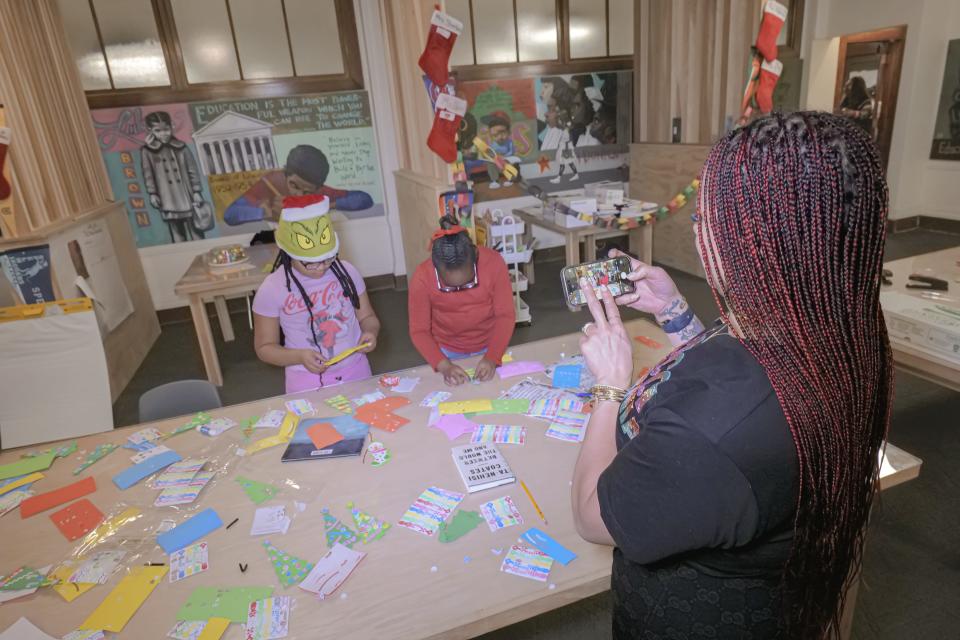
Hannah-Jones knows Waterloo was once named one of the worst places in the nation for a Black person to live. She wants it to become the best place in America for a Black child to learn.
"We have the resources within ourselves to educate our children."
Jay Stahl is an entertainment reporter at The Des Moines Register. Follow him on Instagram or reach out at jstahl@gannett.com.
This article originally appeared on Des Moines Register: Pulitzer Prize winner Nikole Hannah-Jones gives back to Iowa hometown

